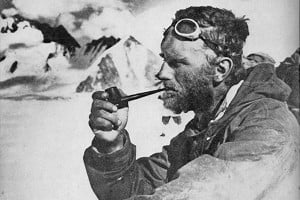
Have teenagers in tow - will travel: outdoor instructor Rebecca Coles considers the challenges and rewards of life as a school expedition leader
Are you going on holiday again Becky?' I use all my self-control not to bite this ill-informed person's head off. 'I'm off to Madagascar this year' I say, smile, and change the subject. Leading expeditions for schools is no holiday. After all, when did you last go on holiday with the ultimate responsibility for 12 teenagers? It is hard work, 24/7 and often for four weeks without a break.
'The Expedition Leader's primary role is to ensure the safety of the group'
Nor is it like being a Tour Leader; guiding a group around a country from one pre-organised hotel to another. Instead the group of young people have to book accommodation and transport as they go and make everyday decisions like what to eat. As the Expedition Leader I have to go through the sometimes protracted process of facilitating the group to come to sensible decisions, for example when the bus breaks down in Zambia or on much more mundane things like choosing a place to eat out in Santiago.
However, expedition leading is also one of the most rewarding things that I do as an Outdoor Instructor. It is rare that we work with the same group for four weeks and introduce them not only to new skills like wild camping but also a completely new culture and the possibilities of travel. Seeing a young person, who doesn't necessarily excel in the classroom or on the playing field, confidently coordinate the building of a kindergarten playground or shop in the local market and cook a meal for 16, or complete a five-day self-sufficient trek culminating in an ascent of a big peak, that they never thought they could climb, is incredibly satisfying. After all many adults, with all their life experience behind them, would struggle with some of these tasks and being able to demonstrate these skills is what makes participants stand out on job and university applications.
'As a leader you must leave behind any personal aspirations for the trip. If you end up seeing the Taj Mahal or getting to the summit of Jebel Toubkal then this is a bonus, but the reason that you are there is to help the group. In some respects youth expeditions are like supervised backpacking'
In some respects youth expeditions are like supervised backpacking. Most expeditions involve a trek and a community project and the degree to which the logistics of the itinerary are prearranged or are organised by the group as they travel depends on the destination.
Groups are generally from the same school and range in size from eight to 14 students with two to four adults (consisting of teachers and the Expedition Leader). Groups are expected to organise themselves into roles, such as a Group Leader and Expedition Accountant, which are rotated throughout the trip. So, as the Expedition Leader you can sit back whilst the group organises everything? Well, this is the end goal but it doesn't quite happen like that! Groups need a lot of input, especially at the start of the expedition, and the most skilled leaders steer groups to making the right decision, organising and coordinating them by empowering individuals and facilitating a group solution or at least pointing them in the direction of where to find an answer. This can take a lot of time and patience. The expedition ethos has a strong focus on experiential learning and a good leader knows when to stand back and let things go, not entirely to plan - if there was a plan to start with. This is a type of learning process which can be quite alien to young people as they rarely experience it at school.
For experiential learning to be a positive experience there are three important stages. Firstly, the group must understand that this is how the expedition is meant to work and that making a mistake doesn't have to be negative. Secondly, there must be an ethos of respect and support adopted within the group towards those making the decisions and taking on responsibility. Thirdly, for the group to fully learn from the experience there must be time set aside to review what happened, what worked well, if alternative approaches could also be used in the future and relating learning points to situations beyond the expedition. Reviewing is very important throughout the expedition and happens on a daily basis. This is where I find I do the most actual leading and the more imagination I can put into review sessions the more I can keep the group engaged, especially if it is after a long day.
'The expedition ethos has a strong focus on experiential learning and a good Expedition Leader knows when to stand back and let things go, not entirely to plan'
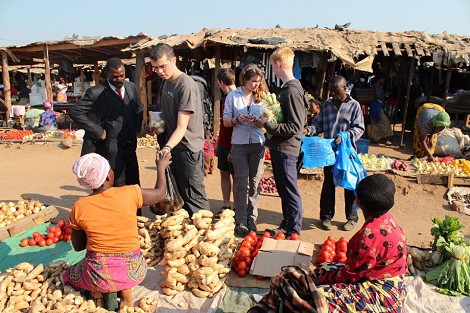
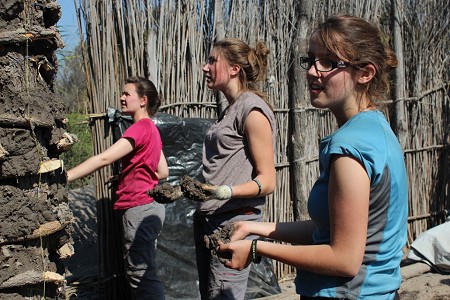
During the expedition itself the Expedition Leader's primary role is to ensure the safety of the group, not just on treks but in towns and cities, on any local transport and whilst doing any project work - and the responsibility of this cannot be overstated enough. Secondly, it is your job to keep the group on budget and sticking to the itinerary, without detracting from the ethos of experiential learning, of course. Missing a bus can have great learning points but shouldn't be allowed to happen if it means that the group will miss out on their trek. In conjunction with this a leader must draw learning points from experiences, relate skills to situations in everyday life and create an environment for young people to develop. All whilst making the trip an enjoyable and memorable experience.
As a leader you must leave behind any personal aspirations for the trip. If you end up seeing the Taj Mahal or getting to the summit of Jebel Toubkal then this is a bonus, but the reason that you are there is to help the group achieve their goals, challenge themselves and utlimately to feel that they have achieved. As an Expedition Leader you must always feel within your comfort zone whether that is trekking at high altitude or stepping off the plane into the chaos of Delhi late at night. So, plenty of personal independent travel experience as well as experience working with young people, leading groups in the outdoors and trekking overseas is invaluable. If you lack some of this experience it may be possible to get a position as an Assistant Leader in order to gain what is required.
On expedition an Expedition Leader is supported by one or two teachers from the school who are an invaluable resource; knowing the students and what motivates them. They are also very useful when it comes to keeping discipline issues in check and offering pastoral care. The Leader Team works together and teachers often take on additional roles such as looking after the medical kit and records and ensuring that the participants are on track with the budget. For large groups an Assistant Leader may also be part of the Leader Team. But life as an Expedition Leader can still be lonely, especially when difficult decisions have to be made. Thankfully, the Leader Team isn't the only place where support can be found. At the end of a satellite phone a leader can get advice from a whole host of experts through an Operations Room manned around the clock in the UK. The majority of calls to the Operations Room are for administrative queries such as minor changes to the planned itinerary or budget adjustments, but bigger problems like a lost passport or a range of health issues that may need medical attention can be talked through if needed.
With all the backup and support that these expeditions have they don't come cheap. Participants are expected to raise the amount themselves and the more of this they manage, the more they get out of the trip. In the build-up to expedition participants are given guidance on appropriate fundraising where they are steered towards using entrepreneurship to provide a service or run an event, such as making Christmas decorations or running a quiz night. Some fundraising is at an individual level whilst bigger events are often organised as a group. With the help of dedicated teachers this can begin the teamwork which will be so important for a successful expedition.
Here are some top tips for leading expeditions:
Lead by example; those fried locusts on the table aren't for decoration they are the starter! Be prepared for anything; in India I was prepared for the whole group to have travellers' diarrhoea for four weeks however one of the participants needed to see a doctor due to constipation. And finally, always get the group to have some form of entertainment up their sleeve, the locals are just as fascinated with the groups that visit as the expedition groups are with them; you will be asked to sing songs and demonstrate your cultural dance?! (particularly amusing for the English schools).
If you are still interested in becoming a school Expedition Leader here is the check list for applying:
The minimum requirements to work for Outlook Expeditions and other similar companies are the Mountain Leader (summer) award, a valid first aid certificate, Enhanced CRB check, experience working with young people and independent travel in less developed regions of the world. Some expeditions require higher qualifications and experience such as high altitude trekking, a Winter ML or Kayak coaching award.
A successful initial application may be followed by an invitation to a leader selection weekend. Here potential employers are looking for leaders that fully understand their duty of care on expedition, can apply common sense to resolve problems, and can apply the ethos of their expeditions. It is useful to come prepared with some fun and imaginative review and facilitation sessions that could be used with groups. The weekend may also involve an insight into how the expedition company operates, including their backup procedures and systems as well as training and idea swapping sessions with themselves and others attending the weekend. Success at this stage will probably result in an offer of an expedition and contract of work. Most expeditions take place over the summer but there are also the commitments prior to departure that must be fulfilled.

About the author
Rebecca Coles is an expedition leader based in Sheffield, where she is just about to finish a PhD in Glacial Geomorphology at the University of Sheffield.
She has been mountaineering and climbing on all seven continents, often off-the-beaten track, and has been to all the Greater Ranges apart from the Karakoram (but would very much like to). A previous personal trip to Kathmandu was the start of nine months of travelling and mountaineering back to the UK, overland. She also enjoys rock climbing in North Wales and the Peak, and Scottish winter routes when in the UK. She has led expeditions in South America, Africa and Asia and leads trips for Outlook Expeditions.
Potential Expedition Leaders can contact Outlook Expeditions by calling 0845 9002989 or apply online.
- Intro to Trekking in Nepal, part 2 22 Oct, 2013
- Intro to Trekking in Nepal, part 1 13 Aug, 2013
- Everest Base Camp, the Quiet Way 3 Feb, 2013



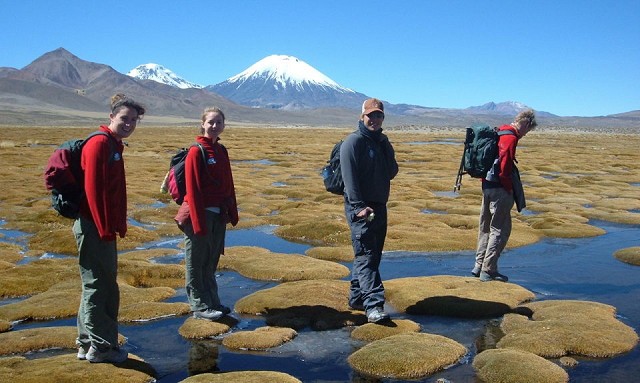
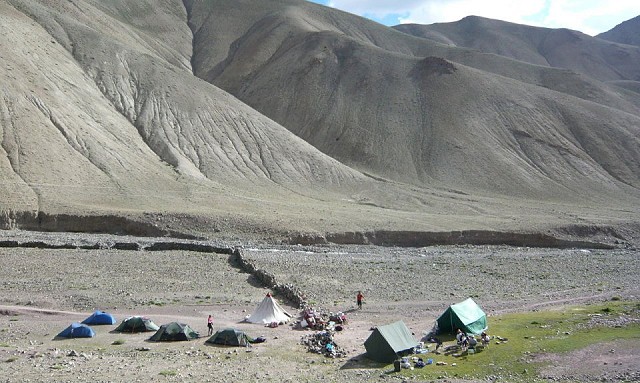
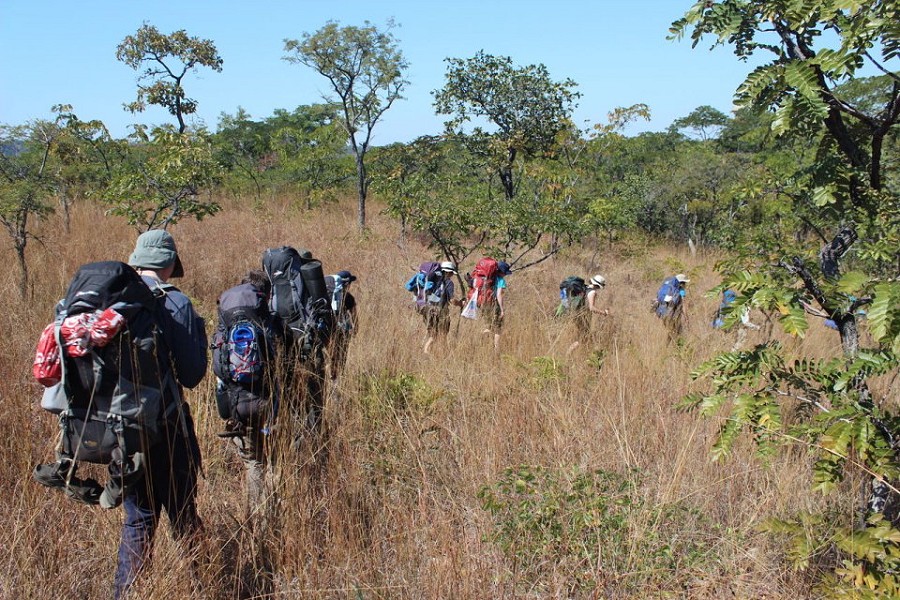
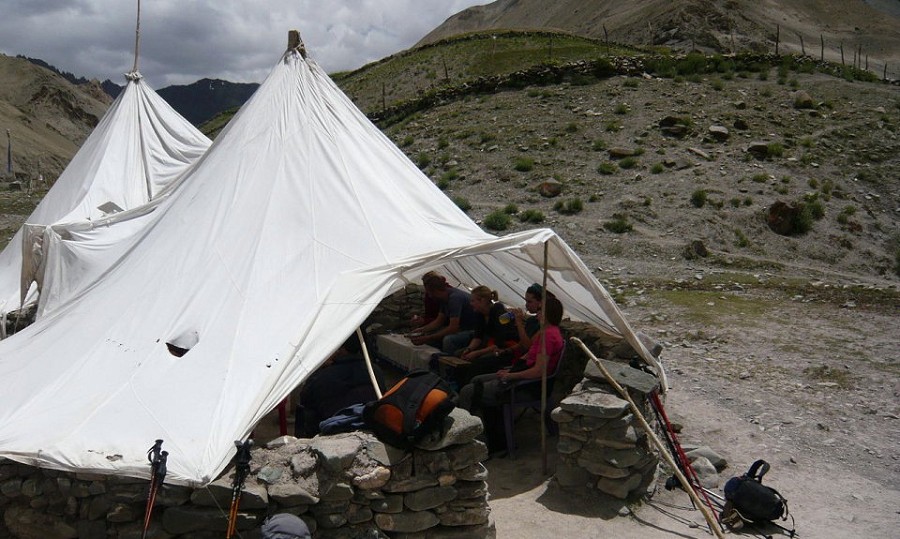
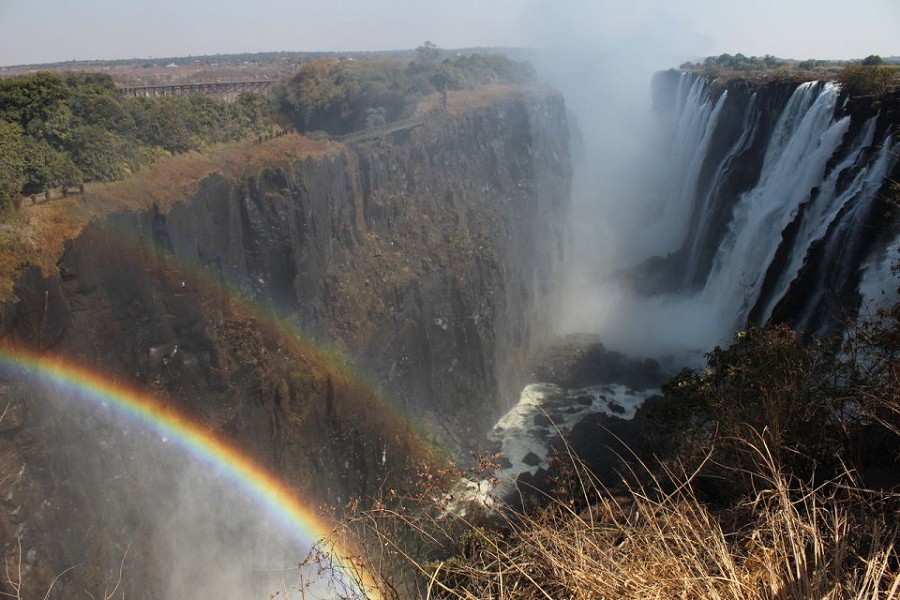




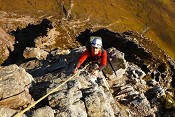


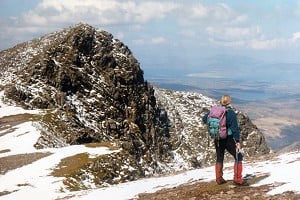
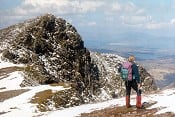
Comments